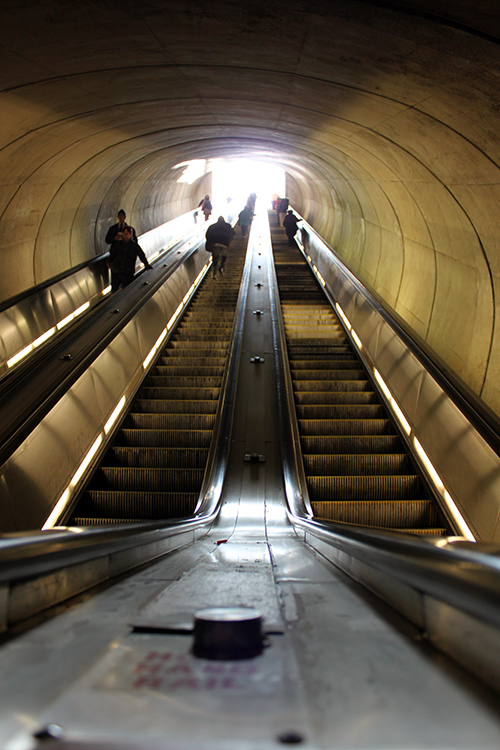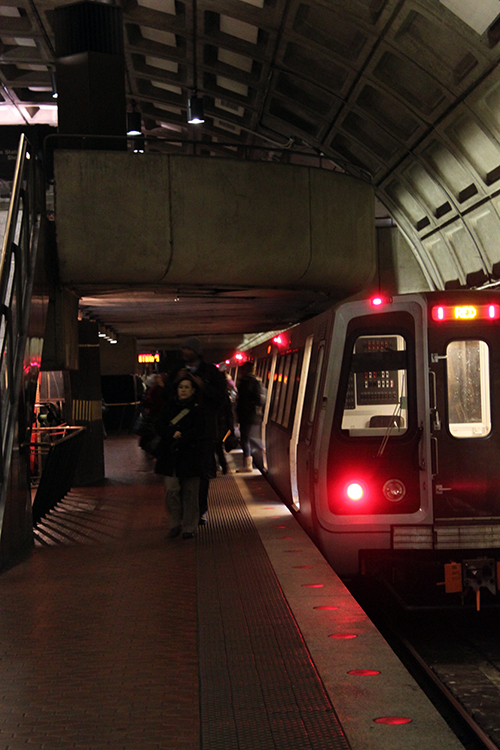 As anyone who has lived here for very long can tell you, DC is a very intense place. It is a city full of passionate people – big-picture idealists who are intent on making a lasting impact on our society, culture and government. Thousands of people move here every month for jobs at non-profits, think tanks, government agencies, lobbyist groups and educational institutions. The focus of the city is on high-level policy, and many of us seem to live in real-time sync with the political theater of Capitol Hill and the behind-the-scenes machinations of K Street.
As anyone who has lived here for very long can tell you, DC is a very intense place. It is a city full of passionate people – big-picture idealists who are intent on making a lasting impact on our society, culture and government. Thousands of people move here every month for jobs at non-profits, think tanks, government agencies, lobbyist groups and educational institutions. The focus of the city is on high-level policy, and many of us seem to live in real-time sync with the political theater of Capitol Hill and the behind-the-scenes machinations of K Street.
In my experience, Washington is a place where the line between work and personal life is often virtually non-existent. This is a city where the office never sleeps. 60-hour work weeks seem to be the norm, and I have no doubt that much higher hour counts are common. And in the age of smart phones and wireless internet, many of us never truly unplug. It is easy for our job descriptions to creep into every area of life and every waking moment; but if we love our work, what’s the problem?
When I was a kid, my father often repeated a phrase that his own father had repeated to him: You can have anything you want, but you can’t have everything you want. I have never seen this truth play out more clearly than here in Washington. Many of my friends and neighbors have resolved to be the best in their profession – whatever the field – and they are putting in the effort to make that happen. 60 hours, 80 hours a week – every waking hour, if that’s what it takes. Get ‘er done. It’s not just a job, not even a career – it’s a cause.

And that’s great. A lot of folks here are developing experience, skills and résumés that are simply outstanding. Washingtonians are racking up a lot of wins. Some of the more lucky professionals here are achieving exactly what they set out to accomplish. This town is a great place to excel.
Still, we can’t have everything we want. There is a cost to this intense focus on our professional lives. There is so much more to our lives than work: Most of us want to live in a thriving neighborhood, to have a strong network of friends, a healthy marriage, and time for leisure and recreation. We want to live in a world of depth and meaning. We long for a life that is worth all the hard work we put into it. Yet, when we’re working 60-80 hours every week, it gets a lot harder to enjoy the fruit of our labor. And building real, sustainable community is almost impossible.
This represents both a major challenge and a calling for us as Capitol Hill Friends: In a culture of busyness, stress and overburdened lives, how can we become a community that provides a fresh perspective on what our deepest priorities could be? What would it look like to lead holistic lives, taking the development of healthy community just as seriously as polishing a stunning résumé? What would happen if we shifted our priorities to people rather than abstract causes, to Christ’s mission for us rather than mere work?